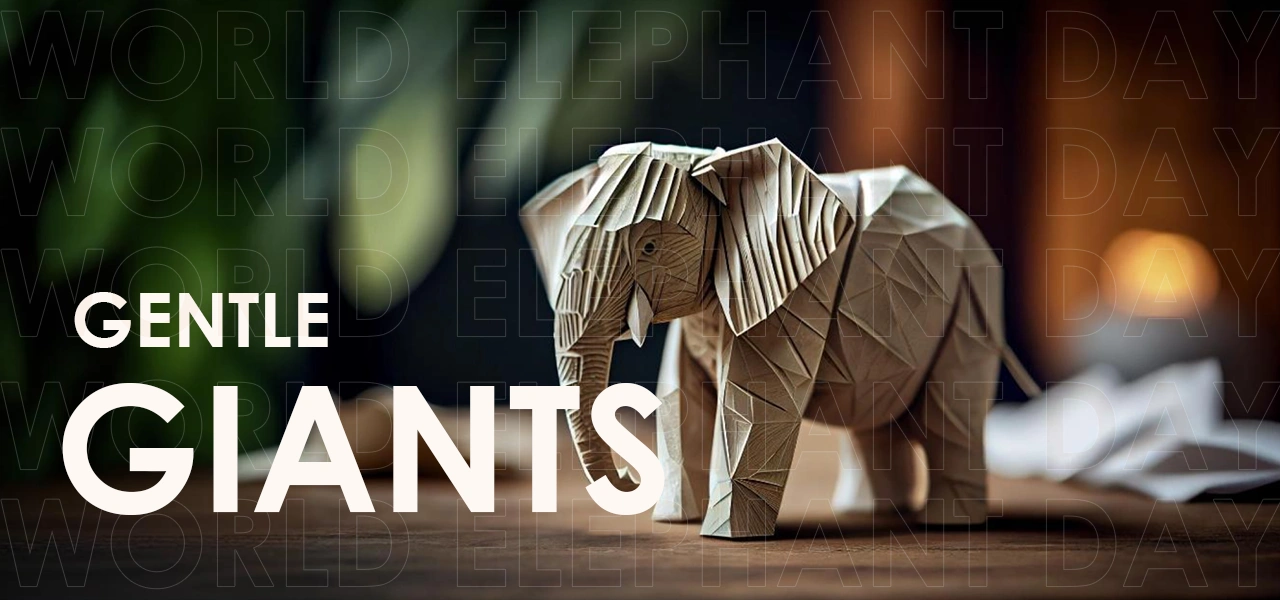How To Select The Best Corporate Event Management Company: Key Considerations
Putting together an occasion in Bangalore is an elating yet testing task, particularly with plenty of corporate event
Read More
World Elephant Day, observed every year on August 12th, is a global initiative dedicated to the preservation and protection of elephants. This special day raises awareness about the issues faced by these magnificent creatures, including habitat loss, poaching, and human-wildlife conflict. While elephants are revered in many cultures, their populations are dwindling due to various threats. On this day, people across the world come together to celebrate elephants and support conservation efforts. In this article, we'll explore the significance of World Elephant Day, the challenges faced by elephants, and how we can contribute to their protection.
World Elephant Day was established in 2012 by Canadian filmmakers Patricia Sims and Michael Clark, in partnership with the Elephant Reintroduction Foundation. The day aims to draw attention to the urgent plight of elephants and rally support for their conservation. Elephants are keystone species, meaning their presence is crucial to the ecosystems they inhabit. They play a significant role in maintaining the balance of their environments, and their survival is directly linked to the health of other species and habitats.
One of the primary threats to elephants is habitat loss. As human populations expand, forests and grasslands are cleared for agriculture, infrastructure, and urbanization. This encroachment leads to the fragmentation of elephant habitats, restricting their movement and access to food and water. The loss of habitat also increases the likelihood of human-elephant conflicts, as elephants are forced to enter human settlements in search of resources.
Poaching is another significant threat to elephants, particularly in Africa. Elephants are hunted for their ivory tusks, which are highly valued in illegal markets. Despite international bans on ivory trade, poaching remains a lucrative and dangerous activity. The loss of elephants to poaching not only reduces their population but also disrupts social structures within elephant herds, as older elephants with larger tusks are often targeted.
Human-wildlife conflict is a growing concern in areas where elephant habitats overlap with human settlements. As elephants roam in search of food, they may damage crops, homes, and infrastructure, leading to tensions between local communities and wildlife. These conflicts can result in the injury or death of both elephants and humans, further exacerbating the challenges faced by conservationists.
Corporate event management plays a pivotal role in raising awareness and funds for conservation initiatives, including those dedicated to protecting elephants. By organizing events that focus on conservation, corporate event management companies can help bridge the gap between the corporate world and environmental causes. These events can include fundraising galas, awareness campaigns, and educational programs that highlight the importance of protecting endangered species like elephants.
To effectively manage corporate events that support conservation efforts, event planners must adopt best practices that align with the goals of the cause. Some of these practices include:
Selecting Eco-Friendly Venues: Choosing venues that prioritize sustainability can significantly reduce the environmental impact of the event. This includes venues that use renewable energy, minimize waste, and promote conservation initiatives.
Incorporating Conservation Themes: The theme of the event should reflect the cause it supports. For World Elephant Day, for example, the event could include educational sessions on elephant conservation, exhibits showcasing the work of wildlife organizations, and auctions to raise funds for conservation projects.
Partnering with Conservation Organizations: Collaborating with organizations that specialize in wildlife conservation can enhance the credibility and impact of the event. These partnerships can provide valuable resources, expertise, and networks to support the event's goals.
Engaging Attendees: Corporate events should engage attendees in meaningful ways, encouraging them to take action for conservation. This can include interactive sessions, volunteer opportunities, and providing information on how individuals and businesses can contribute to the cause.
Plan with Purpose: Clearly define the objectives of the event and how it will contribute to conservation efforts. Whether it's raising funds, increasing awareness, or educating the public, the event's purpose should guide all planning decisions.
Measure Impact: Track the success of the event through metrics such as funds raised, attendance numbers, and media coverage. Use this data to assess the event's impact and identify areas for improvement in future events.
Leverage Social Media: Utilize social media platforms to promote the event and engage with a wider audience. Share stories, photos, and videos that highlight the importance of conservation and encourage followers to support the cause.
Create a Lasting Legacy: Ensure that the event's impact extends beyond the day itself. This can be achieved by establishing ongoing partnerships, creating educational materials, or launching long-term conservation initiatives that continue to benefit elephants and their habitats.
World Elephant Day is a reminder of the critical need to protect and conserve these gentle giants. As we celebrate this day, it's essential to recognize the threats facing elephants and take action to ensure their survival. Corporate event management companies have a unique opportunity to contribute to conservation efforts by organizing events that raise awareness, funds, and support for elephant protection. By adopting best practices and focusing on meaningful impact, these events can play a significant role in safeguarding the future of elephants and the ecosystems they inhabit.
As we commemorate World Elephant Day, let's commit to making a difference for these magnificent creatures and work together to create a world where elephants can thrive for generations to come.

One of the best ways to make a name for you in the event industry is to self-educate and always be on trend. You don’t want to waste your time following fads that never amount to much but staying up-to-date on what clients are interested in.
Read More